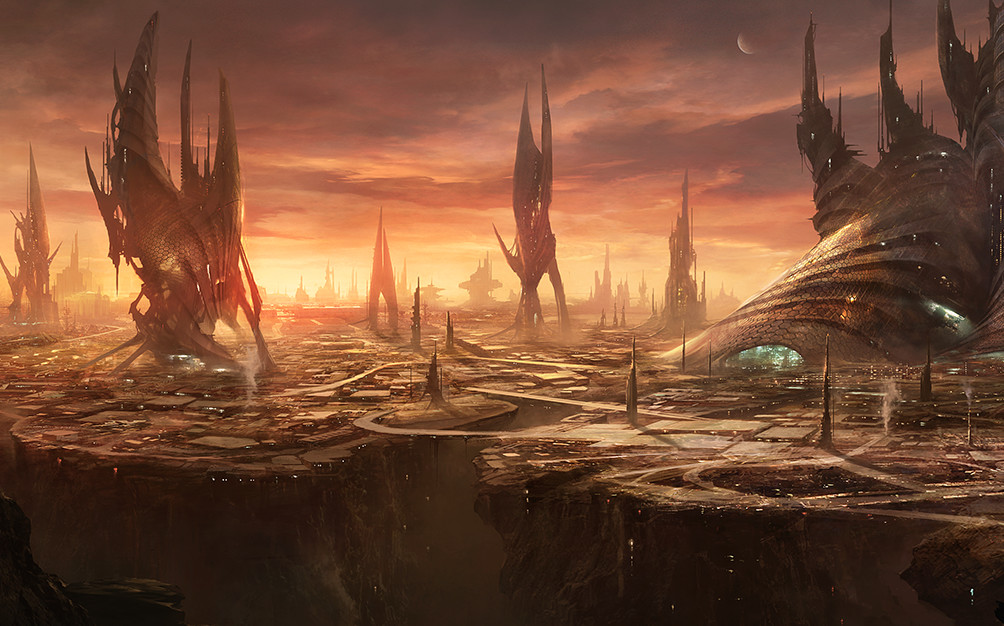In space no one can hear you scheme
Earlier this year, Paradox offered an alternative for the many disappointed by EA’s botched SimCity two years earlier by publishing Colossal Order’s excellent city-building-simulator Cities: Skylines.
Now Paradox’s internal studio is effectively getting the run back on Civilization: Beyond Earth and addressing complaints of unapproachability levied at its own successful strategy games, like Crusader Kings and Europa Universalis. Mind you, the latter is more important. But while Destructoid’s Darren Nakamura gave Beyond Earth a “stellar” 9.5 (misquoted on the Steam page as just a 9), user response on Steam and Metacritic is pretty torn. Clearly people have some mixed feelings there.

Stellaris (PC)
Developer: Paradox Development Studio
Publisher: Paradox Interactive
Release: TBA
So, conquest in space, again, with Stellaris. The Beyond Earth comparison isn’t just based on the sci-fi theme, as director Henrik Fåhraeus explained to me last week, Stellaris, “is a grand strategy game masquerading as a 4X game.”
In that sense it’s a departure from past Paradox successes and the upcoming, WWII-set Hearts of Iron IV. He explained in a blog post earlier this year, “The early game is thus characterized by exploration and discovering the wonders of the galaxy,” until reaching the mid-game wherein, “there is not much left to colonize and your easy expansion grinds to a halt. At this point, the map stabilizes into the Stellaris equivalent of the world map in Europa Universalis.”
You begin as one planet directed by a set of cultural guidelines (shown off to us last week was an Individualist Xenophobic empire, which made for a good first encounter with another large empire during which the only dialogue option was, “Alien scum!”) that has just discovered faster than light travel. You’ll choose between slower , free-moving warp travel; hyperspace across straight lines; and wormhole travels, which requires wormhole stations to be built.
As opposed to pre-canned societies, there are over 100 alien portraits that can be aligned with a variety of traits, so “you will never meet the same aliens again;” or, at least, those bug-eyed purple asshole from your third game might be an inquisitive, pacifist sect next time you encounter that alien art. There are a few other parameters to set, like how many large empires will populate the galaxy you’re exploring, but there are also quick start and preset options that reflect Paradox’s attempt to widen its appeal, “without compromising our level of depth and complexity.”
There is an in-game adviser, for example, full voiced to help guide burgeoning emperors (or democratically-elected fish-faced idiots, whatever). In fact, Stellaris is Paradox’s first project with a dedicated audio director. Coupled with all the space-faring in a full-figured galaxy and it could prove a little more inviting than playing on a giant map if the grand scope of spaaace isn’t too alienating itself.
Other simplifications include ditching tech trees for a system, “more like a collectible card game where you draw three cards and pick one.” Research into Physics, Society, and Engineering is dictated by your scientists’ traits and immediate options are weighted to be most convenient to you at any given time, though sometimes rare research opportunities pop up (“space amoeba weapons” were mentioned).

Game progression goes something like this. Start on your home planet, represented by squares arranged 4×4 wherein you can place population unites (and strive for adjacency bonuses, like XCOM‘s base-builder). Send your science ship around to survey the galaxy, including addressing strange anomalies.
In the demoed instance, we were drawn to a distress signal much like our own. There was a 10% failure rate, which just means missing out on the anomaly, though there is potential for catastrophic failure. In this case, the crew of the discovered ship was dead by brain parasite and a trait of our surveying scientist is the only thing that saved our crew from succumbing. Instances like these are neatly thrown into a Situation Log and you can research them from there.
Then you’ll want to send out ships for colonization and build construction ships to take advantage of resources (habitable planets are rare and meant to be cherished). There’s a detailed ship builder, but you can auto-build for the best, too. “I don’t want the flow in this game to be too micromanagey,” Fåhraeus said. Other systems will start looping back around later. The population of a colonized planet or even your native planet can splinter off into factions of warring ideology, leaving you to choose if you want to say, quash the insurrection with force or give rein to a splintered, population-supported political spin off group.

Eventually you will make it to the aforementioned mid-game, where it’s “more like Europa Universalis” and you’re butting up against large, rival empires. If one scouts you, it has the option to research you before you research it, and make first contact. There are other, smaller civilizations you’ll discover, too, some pre-industrial, some post-technology.
To counter past Paradox games’ anti-climactic endings when “you reach a point where you know you won,” and are just trudging along to victory, late game crises are introduced, revolving around things like dangerous technological advancements or sentient robot worker uprisings — things that threaten the whole galaxy. And there’s maneuvering to do there, too, like letting the killbots off your biggest threat while allying elsewhere, bolstering yourself for the impending man-vs-bot slaughter.
Also, you can “uplift” alien wildlife and, say, create a planet of space-faring, extremely loyal dolphins to go space crusade in your name, amen. Stellaris is “coming soon.”





Published: Nov 24, 2015 12:00 pm